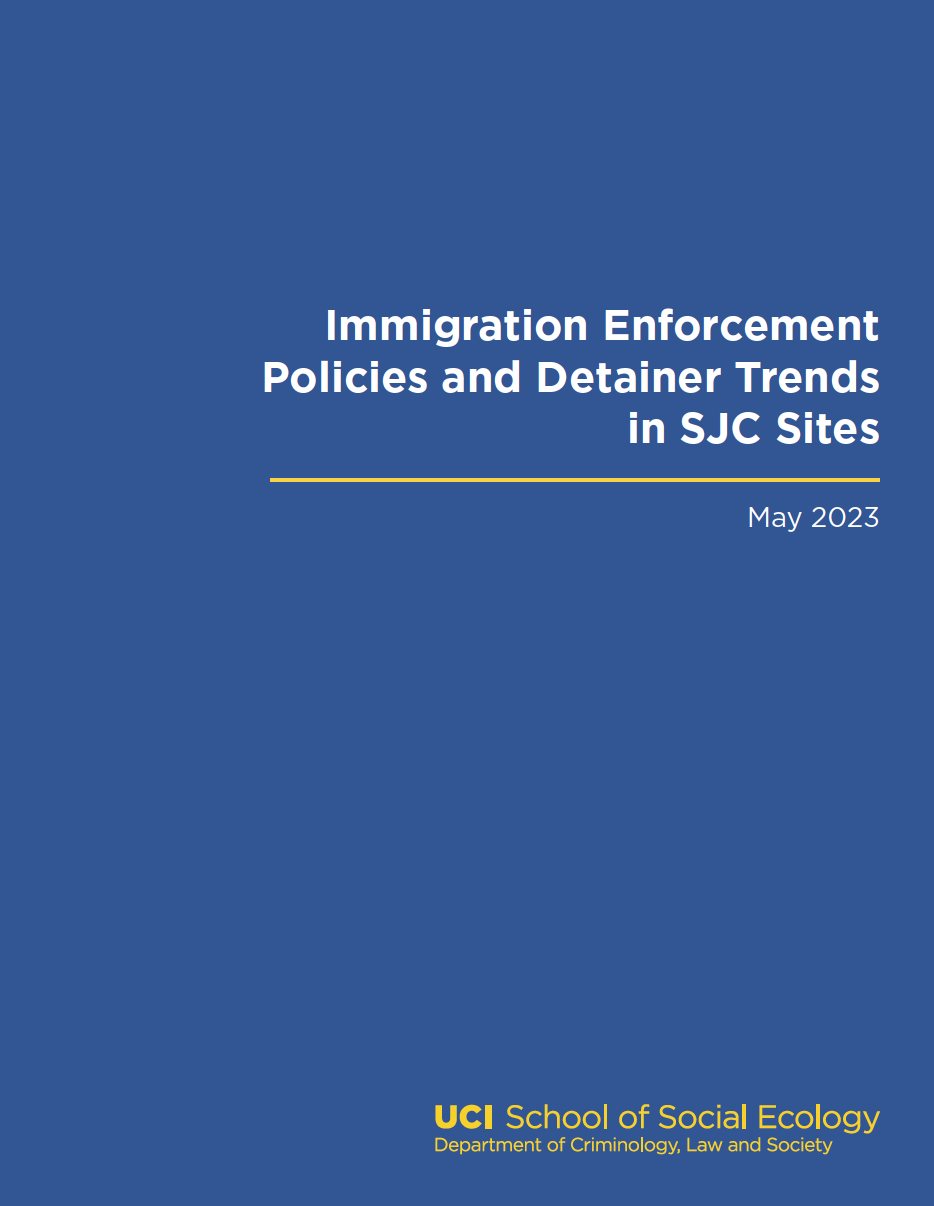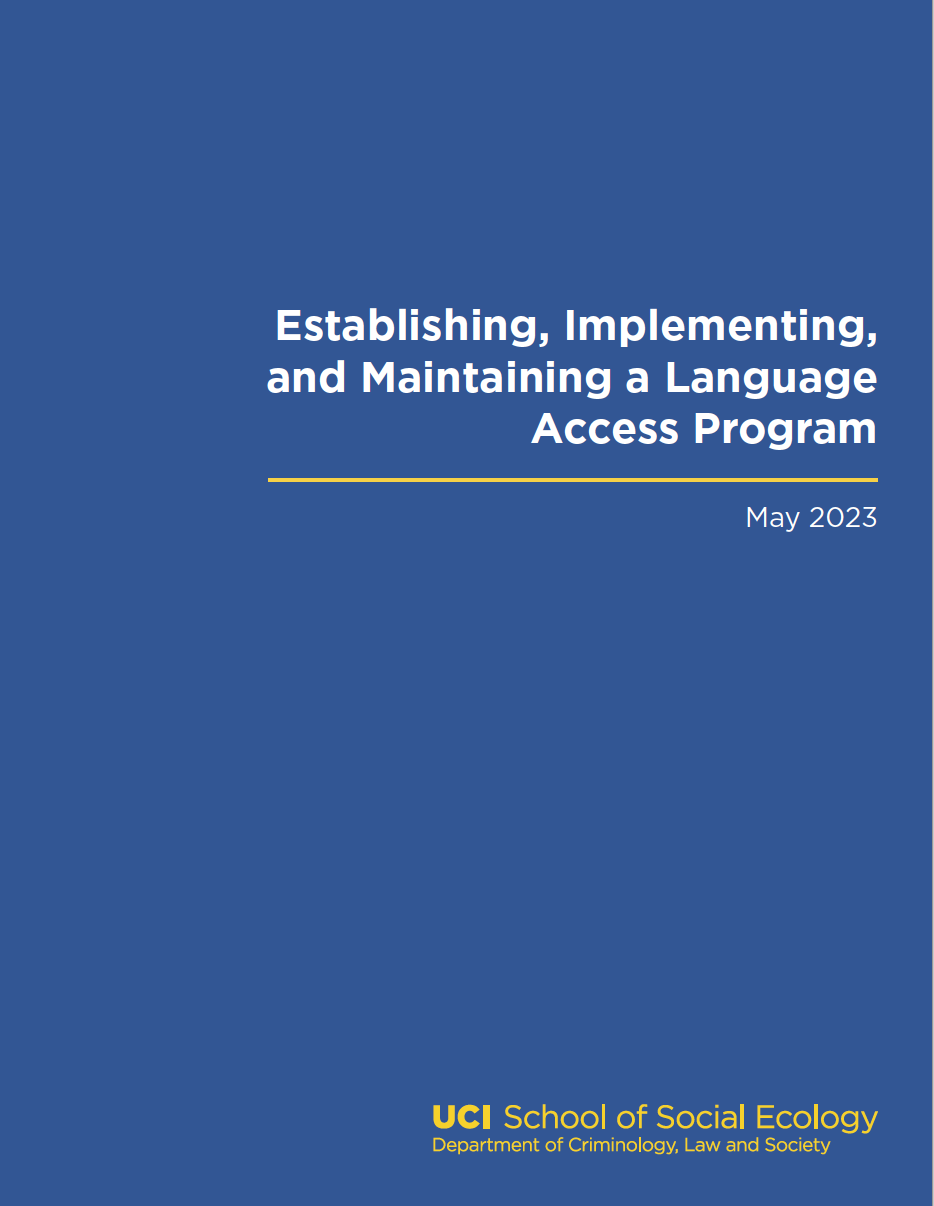
Reports show overstepping on immigration, lack of resources for language access
The John D. and Catherine T. MacArthur Foundation today released two national reports commissioned as part of its Safety and Justice Challenge (SJC) that highlight varying local immigration enforcement tactics and gaps in language access services for those who are justice-involved. The reports reveal that some local justice systems are using local resources to execute federal immigration policy, and lack proper resources to ensure language services for those who need it.
The new reports, titled “Immigration Enforcement Policies and Detainer Trends in SJC Sites” and “Establishing, Implementing, and Maintaining a Language Access Program,” are part of a broader effort to understand the experiences of Latino/a individuals who are involved in the criminal justice system –– a portion of whom are immigrants and/or are limited English proficient (LEP). The release of these reports follow the recent release of a paper highlighting the scarcity of data pertaining to these topics.
“The recent rise in anti-Latino/a rhetoric and anti-immigration policies requires us to take a closer look at its impact on our criminal justice systems,” said Nancy Rodriguez, professor of criminology, law and society and co-author of both reports. “By identifying opportunities for local justice systems to better address immigrant populations and those with language access needs, these reports aim to inform new policies that combat racial inequities.”
“Local justice systems must continue to collect and use data to understand how they are and are not adequately addressing the communities they serve,” said Bria Gillum, senior program officer at MacArthur. “These two reports show the importance of reflecting on current practices to inform more effective and equitable solutions, and taking concrete steps to strengthen access to justice for Latino and Latina populations, immigrants, and people with limited English proficiency.”
 The first report, “Immigration Enforcement Policies and Detainer Trends in SJC Sites,” finds that local justice systems have varying protocols for collaborating with U.S. Immigration and Customs Enforcement (ICE) on a range of practices including: collecting legal status information, sharing local data with ICE, making arrests for civil immigration matters, using jail resources to hold immigrants in holdings or deportation proceedings, and granting ICE access to local jails to make interrogations or immigrant arrests. The report is derived from data across cities and counties participating in the Safety and Justice Challenge, with a special focus on Los Angeles County, California; New York City, New York; Harris County, Texas; and Cook County, Illinois.
The first report, “Immigration Enforcement Policies and Detainer Trends in SJC Sites,” finds that local justice systems have varying protocols for collaborating with U.S. Immigration and Customs Enforcement (ICE) on a range of practices including: collecting legal status information, sharing local data with ICE, making arrests for civil immigration matters, using jail resources to hold immigrants in holdings or deportation proceedings, and granting ICE access to local jails to make interrogations or immigrant arrests. The report is derived from data across cities and counties participating in the Safety and Justice Challenge, with a special focus on Los Angeles County, California; New York City, New York; Harris County, Texas; and Cook County, Illinois.
Additional key findings from the report include:
- Specific attention on immigration is required to address racial inequities in local justice systems. The findings indicate that pursuing policies designed to lower jail incarceration and improve racial equity do not by default include an assessment of how immigration policies impact the system involvement of Latinos/as and undocumented persons.
- Jurisdictions restrict and permit collaboration with ICE to varying and inconsistent degrees. While 70 percent of sites enacted limitations on some type of immigration enforcement cooperation, nearly 78 percent of jurisdictions lack a formal policy on ICE detention contracts; the absence of clear policy may permit further collaboration.
- A majority of jurisdictions lack formal policies regarding the use of state and local resources to enforce federal immigration law. The majority of sites have no formal policy. However, 18 percent of sites restrict the use of funds for immigration enforcement, while 6 percent of sites expressly permit the use of local resources.
 The second report, “Establishing, Implementing, and Maintaining a Language Access Program,” surveyed several local criminal justice systems and discovered there exist gaps in the availability of language services for those who are LEP despite provisions of Title VI of the Civil Rights Act of 1964 that require federally-funded agencies to provide meaningful access to their programs and activities.
The second report, “Establishing, Implementing, and Maintaining a Language Access Program,” surveyed several local criminal justice systems and discovered there exist gaps in the availability of language services for those who are LEP despite provisions of Title VI of the Civil Rights Act of 1964 that require federally-funded agencies to provide meaningful access to their programs and activities.
The report finds that while organizations and agencies within local criminal justice systems often receive federal funding, and are therefore mandated to provide language services, specific practices and the extent to which services are made available in these systems remains relatively unknown.
Key findings from the report include:
Data around language needs and services is inconsistently collected. Less than half of respondents reported collecting data on how frequently language services are utilized, and about half reported making efforts to address language access complaints beyond a case-by-case basis (e.g., regular reviews of complaints and outreach to specific language minority groups).
Despite the existence of bilingual and/or multilingual staff, most are not formally equipped to provide translation services. Approximately 94 percent of respondents reported that they have bilingual and/or multilingual employees. However, less than half of these employees are certified translators, and less than half offer pay differentials to employees who use their language skills on the job.
Translated content is lacking in digital spaces, written materials and public signage. Less than half of respondents said their official website contains translated content, and less than half reported that public notices are translated into a language other than English. Despite more than half of all respondents reporting that they have translated materials, there are some languages for which no written translation is provided by any of the respondents.
The two reports offer the following policy recommendations for jurisdictions to address gaps highlighted in the findings:
- Restrict the use of state and local resources to execute policies that enforce federal immigration law and contribute to racial disparities
- Limit local data sharing and collaboration with ICE
- Limit the outsourcing of local jail beds for immigration detention purposes
- Identify how local immigration policies are impacting the system involvement of Latino/as and undocumented populations
- Ensure that every individual who comes into contact with local criminal justice systems has access to services in their primary language
- Facilitate the hiring and training of bilingual and/or multilingual staff and interpreters and prioritize pay differentials for staff that are certified to use their language skills on the job
- Consistently collect and analyze data to better understand the language needs of local populations and assess whether the language capacities of the organization are sufficient to meet the identified language needs
- Ensure that all written content is translated, or can be quickly translated if needed
Both reports were co-authored by Professor Rodriguez, former director of the National Institute of Justice, the scientific research arm of the U.S. Department of Justice, under former President Barack Obama.
“Immigration Enforcement Policies and Detainer Trends in SJC Sites” was co-authored by Amalia Meija, Ph.D candidate at the University of California Irvine’s School of Social Ecology’s Department Urban Planning and Public Policy, and Rebecca Tublitz, PhD candidate at the University of California Irvine School of Social Ecology’s Department of Criminology, Law and Society.
“Establishing, Implementing, and Maintaining a Language Access Program” was co-authored by Meghan Ballard, PhD candidate at the University of California Irvine School of Social Ecology’s Department of Criminology, Law and Society.
Contact:
Mimi Ko Cruz
Director of Communications
949-824-1278